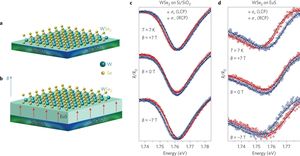Argentina's President Javier Milei is facing significant backlash this week following his polarizing speech at the World Economic Forum held on January 23, 2025, where he controversially condemned 'wokeism', feminism, and other progressive ideals. These remarks triggered widespread outrage, leading to massive protests across Argentina, particularly in the capital, Buenos Aires.
Thousands of demonstrators took to the streets, waving rainbow flags and holding banners declaring, "Rights Are Not Negotiable." Organized as the "Federal March of Anti-Fascist and Anti-Racist Pride," the protest was primarily mobilized by the LGBTQ+ community, rights groups, unions, and various political parties. They aimed to challenge what they termed the "economic violence, political persecution, and sexual repression of Javier Milei's government."
During his speech, Milei did not hold back, sharply criticizing social safety nets and advocating for individual freedom over collective rights. He stated, "With us, it would once again embrace the ideas of freedom -- a model we summarize as the defense of life, liberty and private property." Despite positioning himself as a champion of liberty, his comments have been perceived as aggressive by many, prompting responses from several sectors of society.
Protester Germán Paladino, an industrial engineer, articulated the frustrations felt by many: "I don’t know if this march can change anything, but if it could put a break on Javier Milei’s remarks which were rather aggressive." Milagros, another protester and visual artist, reinforced this sentiment, stating, "I am here to defend our rights, those which we have won and those which are currently under attack." Such statements echo the fears of many Argentinians facing potential regression on hard-won rights.
Milei's words at Davos, especially his remarks labeling progressive movements as "sick wokeism" and describing extreme versions of gender ideology as "plain and simple child abuse," have intensified the anger of activists. This rhetoric clashes with Argentina's history of progressive laws, including legal frameworks enshrined for sexual diversity and equal marriage rights.
On the economic front, Milei's administration has made significant cuts to government spending, reflecting his libertarian ideals. He stated, "The state is not the solution. The state is the problem!" Upon taking office, he implemented drastic measures, including the elimination of nine ministries and substantial reductions to government subsidies. Supporters of his policies argue these actions have effectively initiated economic recovery, significantly reducing the country’s previously soaring inflation rates, which stood at over 200% annually when he took office.
Ian Vasquez, vice president for international studies at the Cato Institute, noted, "When Milei came to power, there was 40% poverty rate... annual inflation of over 200%. Just one year later, inflation is down. The economy started to recover, much earlier than most people expected." By trimming excessive state functions, Milei's government has purportedly created significant fiscal space, leading to the rare phenomenon of budget surpluses.
Under Milei’s radical libertarian approach, several economic indicators turned favorable. Monthly inflation, which had been around 25% at the start of his presidency, has come down to roughly 2.7%. Public opinion appears to be swaying positively toward him, as evidenced by recent polling showing Milei's approval rating has increased by six points.
His policies have sparked mixed reactions, with many praising his courage to cut back government inefficiencies and others expressing fierce opposition rooted in fears for civil rights. While supporters herald his economic reforms as potentially transformative, detractors warn of the socio-political backlash they may incite, particularly amid growing discontent reflected through the protests.
Despite the favorable economic data, serious challenges remain. Critics assert pervasive issues, including excessive tariffs and high taxes, persist, making consumer goods exorbitantly expensive. An anecdote highlighting these problems is the price of electronics, such as the iPhone, which costs nearly $3,000 compared to its $800 price tag elsewhere.
The situation remains tense as Milei presses on with what he terms the "deep chainsaw" cuts to the government, promising more reforms. His intent to dismantle broad portions of the Argentine state may bring forth more protests and societal divisions. Yet, Milei insists his radical vision is the key to restoring Argentina's former economic prowess, which once placed it among the world's wealthiest nations.
Javier Milei's presidency is emblematic of the broader struggles facing Argentina—a country seeking to balance rigorous economic reforms with the societal need for inclusivity and respect for human rights. The path he has chosen will undoubtedly incite fervent debates among economists, politicians, and ordinary citizens alike, as the nation's future hangs precariously at the crossroads of change.



